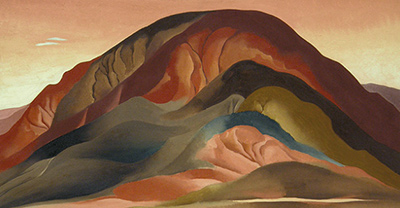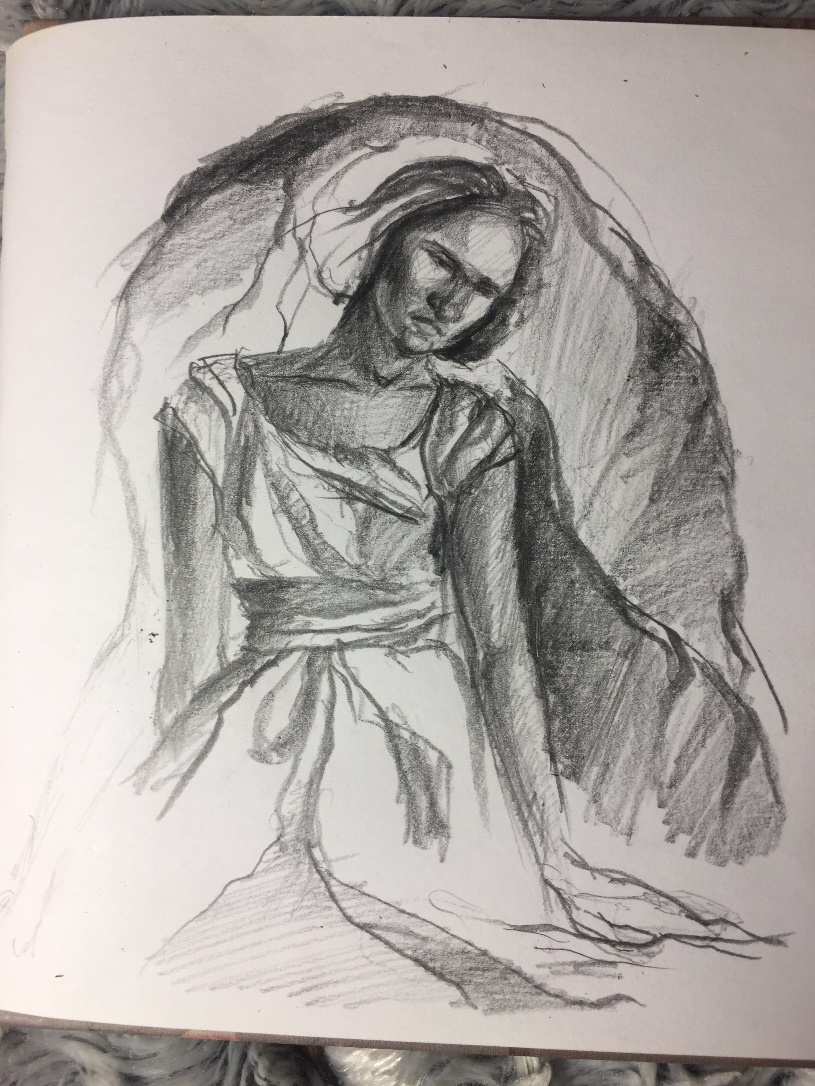Inspiration Piece

Georgia O’Keeffe painted the work above in 1930, basing it on a New Mexico landscape near Abiquiu. It depicts a series of hills of different colors, though many of them, and the painting as a whole, take on a reddish tone. The hills appear to writhe slightly, giving a subtle impression that they are alive. As Hertzlieb (n.d.) explains, the painting was one of the artist’s favorites, expressing her story of discovering the American Southwest and its beauty. It is currently owned by the Brauer Museum of Art, though it is occasionally lent out to other museums for exhibitions.
Art Piece

The red hills of O’Keeffe’s painting have evoked an image of fire in the author, and the implication of life has created an association of the inanimate and the animate. As a result, the author has decided to draw a fire nymph that is surrounded by a flame. Her clothing melds into the fire at the edges, indicating that the two entities are one and the same. The picture was done in gray pencil on paper, which can make the flames challenging to perceive without knowing the background of the piece.
Connection
The two pieces are connected by their usage of inanimate objects, both of which are red-hued, to express a feeling of life within them. They are similar in the overall shape of the lifeless aspect and their stylized, abstract shapes. However, life is more overt in the author’s picture than in O’Keeffe’s, with a person appearing in the middle. The mediums are also different, making the author’s piece more challenging to understand. The medium also affects many of the formal elements, notably colors and texture.
References
“Rust Red Hills.” (2016). Georgia O’Keeffe. Web.
Hertzlieb, G. (n.d.). Georgia O’Keeffe: Rust Red Hills. Valparaiso Poetry Review. Web.